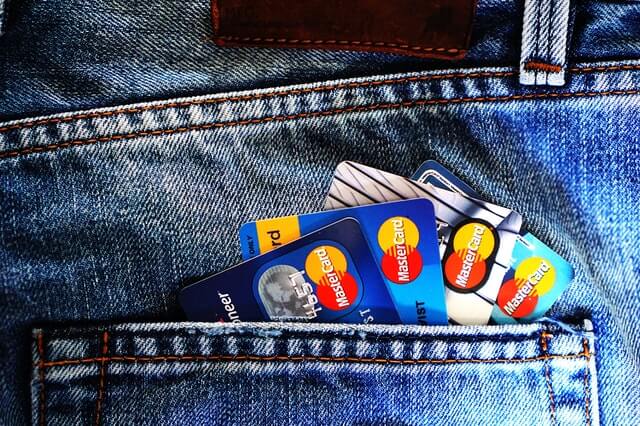If you are turned down for a personal loan then it’s easy to panic and worry about what happened. In these situations it’s best to stay calm and look at your options logically even if not having the cash that month is a challenging prospect. In reality, being rejected for a loan happens to many people.
Firstly, remember having a loan rejected does not define you as an individual and as a person. Lenders are run as businesses and have a wide range of qualifications and factors they look at before issuing a loan. Being declined for a loan does not mean that you’re bad with money or financially irresponsible but means that there are factors that you need to look at before applying again.
And remember, just because you were declined this time doesn’t mean that you’ll be declined again in the future. There are a number of things to look at and work on before applying again.
What Are The Top Five Reasons For Getting Declined For a Personal Loan?
There are many reasons why you might get declined for an unsecured loan. Below we list out the top five reasons you might get declined.
1. Your Credit History is Bad
Having a bad credit history is one of the top two factors that lead to being declined for a loan. The second major factor is your income.
When it comes to any type of loan that you’re applying for whether it’s a student loan, mortgage, or personal loan – credit history is one of the first things that a lender will look at before deciding whether to give you the money. Your credit history determines your creditworthiness. Creditworthiness is how likely you are to repay a loan on time and in full. If you’ve had any financial mishaps in the past which could include late payments, defaults, or bankruptcy your credit score might not meet the minimum requirements set by the lender.
It’s a good idea to look at your credit report through one of the three major agencies to give you an idea of what your credit score is currently. Once you know what your credit score is there are ways to then boost your credit score. For more information, see bad credit loans online.
2. You Have a High Debt to Income Ratio
You might have a good credit history that you’ve built up through regular on time payments but you could still have your application denied if you have a bad debt to income ratio. Your debt to income ratio is calculated by taking the total of all of your debts and then dividing it by your monthly income. A debt to income (or DTI) under 40% indicates to lenders that you have a good balance of debt to income.
Put an example of calculation here of a good debt to income ratio.
If you want to calculate your own debt information ratio look at all of your debts including mortgage, installment loans, car loans, student loans and credit cards and then divide that total figure by your income. If you do have a ratio that is too high paying down some of your debt will drop the ratio which in turn reduces your credit utilization ratio. Doing this can increase your chances of being approved .
3. Part-Time Work Or an Unstable Employment History
Consistency is key to a lender. Whether it’s making your payments on time or having a consistent paycheck, lenders like borrowers who have a good history. If you have a steady paycheck in the past few months then lenders will assume that will continue into the future. When you show a lender different pay stubs from the past 60 days, or have recently changed jobs, or you’re a freelancer working for multiple employers this might reduce how favorably your application is viewed.
If you do seasonal work or freelance consistently this doesn’t mean that your application is necessarily going to be declined. Depending on who you borrow money from, some lenders are willing to look at returns from the past couple of years to look at your income over a longer period of time.
4. Minimum Monthly Income Not Met
Lenders not only want to see that you’re paid consistently but also want to see a minimum amount of income in your bank account each month. This depends from loan to loan and lender to lender but make sure to find out these requirements before you apply .
If you have any extra income from renting out a room, a side gig or even some freelancing make sure to include this on your application.
5. You Didn’t Fill Out The Form Completely and Accurately
When applying for a loan there’s lots of paperwork needed. A lender is always very specific about what they need and generally they need employment and income information including pay stubs, tax returns and bank statements. They’re also looking for a full credit report and a state or national ID. In some cases they’ll need collateral documentation depending on what type of loan you’re applying for. If you miss any of the information that they require this will almost always guarantee you are declined for a loan.
This is why it’s important to closely read the terms and conditions and make sure to provide all the documentation they’re looking for.
If your loan is declined, the best thing to do is to wait before reapplying.
What Should I Do Before I Apply Again After Being Declined For a Loan?
Being denied can be a frustrating process but don’t automatically apply again and think that you’ll get a different result. One of the biggest mistakes we see is when borrowers apply again with the exact same criteria and are surprised when they get declined again.
Before you apply again there are a number of immediate steps you can take right after rejection.
Find Out Why You Were Denied For Your Loan
The first step you should take before reapplying for a loan is to find out why you are denied in the first place. It could be because you didn’t meet the minimum debt-income ratio, it could be because your credit score is not good enough or even having negative items listed on your credit report that you weren’t aware of. It might even be because you applied for too much money. Usually you are given rejection reasons by the lender but if you can’t easily find that information then you can contact them directly.
The Equal Credit Opportunity Act was set up so that you have the right to ask your lender why you are rejected. You must ask them within 60 days to receive this information. After you’ve asked them for an explanation they must provide you with specific reasons that you were denied. This is a great starting point as you can use these criteria as a place to begin fixing any issues that exist.
Check Your Credit Report and Remove Any Errors
Once you’ve identified the reason that you’re rejected you should then check your credit report. Because of the pandemic you can receive a free copy of your credit report every week until April 20th 2022.
Before the pandemic started you could only receive one free report per bureau, per year.
Look closely through your credit report to identify any negative marks. Negative marks could include late or delinquent payments that show up on your accounts.
If you find something that doesn’t look right you have the ability to dispute any information shown in your credit report. You can either pay someone to do it for you or do it yourself. There’s no charge to disputing any information that is inaccurate on a credit report. The FTC (Federal Trade Commission) has a collection of sample letters that you can use to dispute errors on your credit report.
What Can I Do To Increase My Chances of Being Approved For a Loan?
There are a number of ways to improve your credit score and increase your chances of approval:
Provide Collateral
Collateral is anything valuable that you can secure your loan against. This can increase your chances of being approved for a loan. A loan that uses collateral is called a secured loan. Examples of collateral could be a car title, savings account or a cash deposit. A lender is able to see your collateral if the loan is not paid and some might be more willing to approve your loan.
Ask for Less Money
You might have been declined because you asked for too much money. Eligibility is based on affordability and if the lender doesn’t think you can pay the money back each month then they might decline you. If you think this might be the case then you can ask for a lower loan amount.
Increase Your Down Payment
If you want to reduce risk for the lender you can increase the amount of money you’re putting down as a down payment. This can increase your approval odds as you’re more attractive in the eyes of the lender. As an example if you’re applying for a mortgage you’re more likely to be approved if you put down 20% of the loan amount compared to just 10% of the home price.
Increase Your Income
This is easier said than done but if you can increase the amount you’re paid each month a lender will look upon you more favourably. It’ll also help you qualify for more loans. Having a higher income, reduces your DTI ratio. To make extra money you could try creating a side hustle or learn a new skill online that’s in demand through websites like Fiverr or Freelancer.com.
Increase Your Cash
Many lenders ask you to have a certain amount of cash in reserve before applying for a loan. If this is a key requirement for the loan then increasing the amount of cash you have on hand will help you apply for the loan. To help you put cash away you can create an automatic savings plan that moves money from your checking to savings account each month.
I Took Steps to Improve My Application But Was Declined Again, What Should I Do?
If you follow these steps and you’re declined again then start by asking your lender why you were declined. It might be for a completely different reason to the first time and it could be easy to remedy. Before applying again make sure to review your credit report and the reasons for being denied and see what you can do to increase your chances of approval.
Other Methods of Financing
If you don’t qualify for a loan the first or second time you could look to apply for a secured credit card, apply for a grant or scholarship from a local business association, go to a credit union or even ask family and friends if they would lend you the money.



